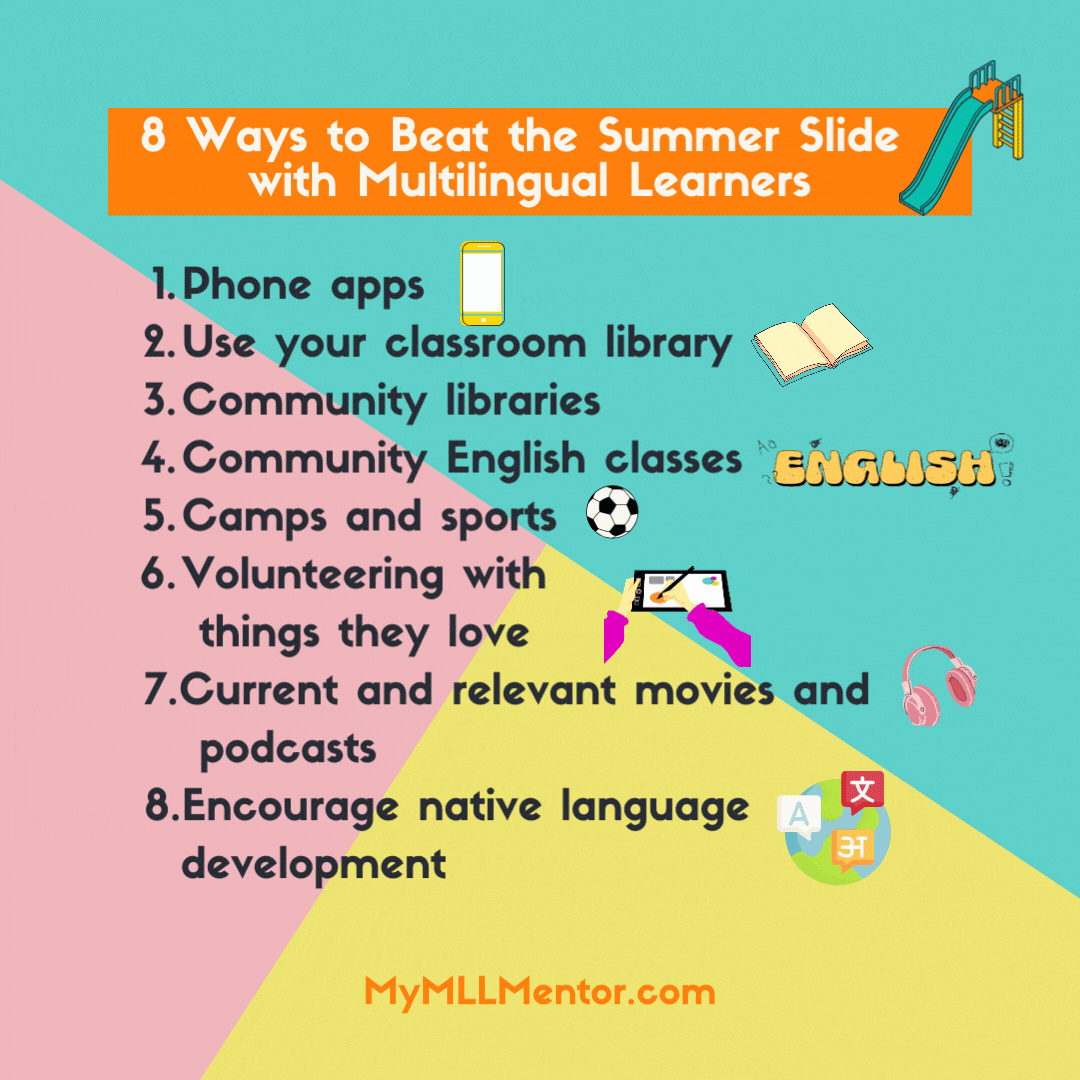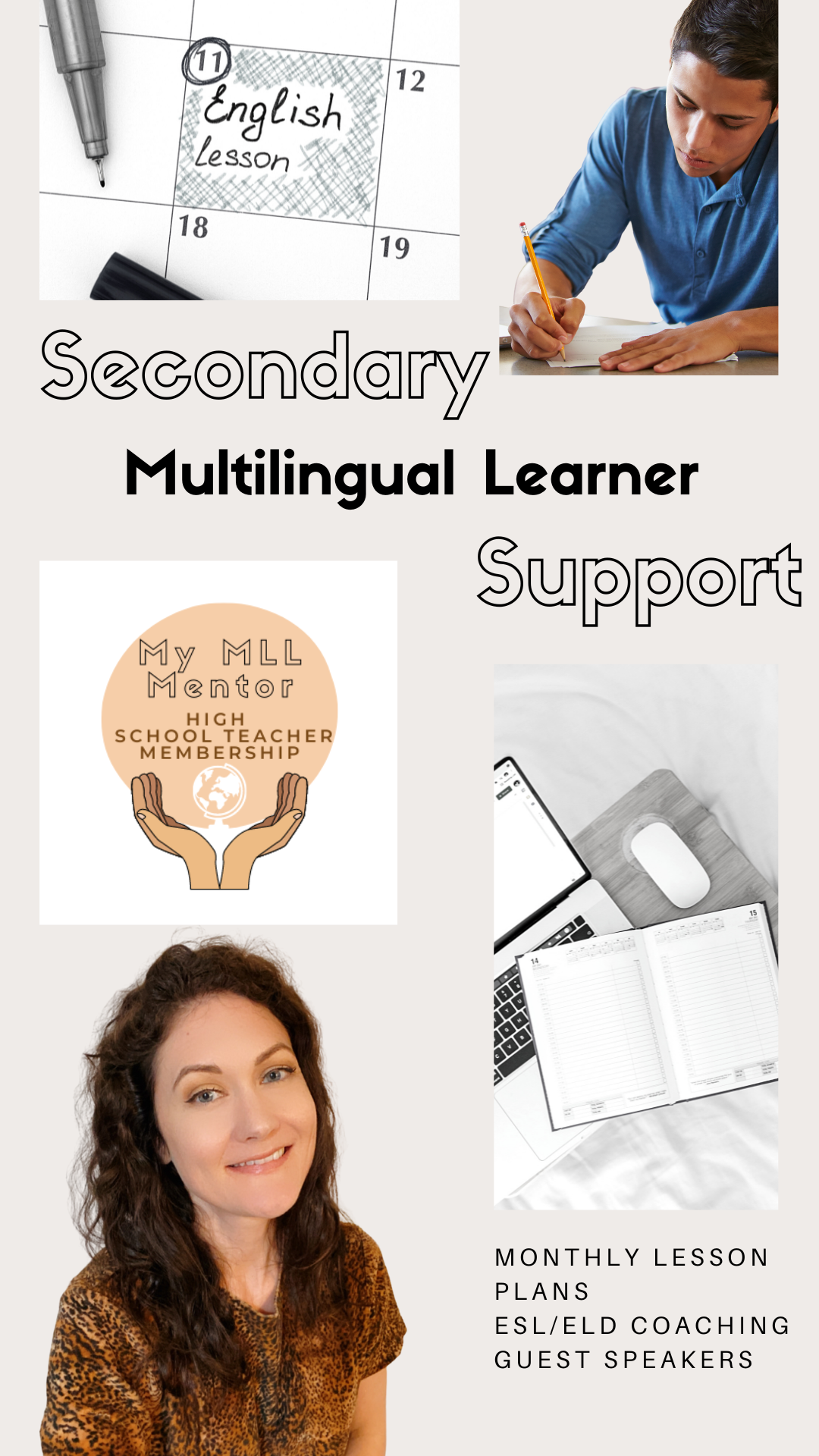|
This post has been updated on 5/22/22.
It's almost summer, and we are starting to think of all of the ways we can practice self-care and relax. However, sometimes thinking ahead or thinking back at previous beginnings of the year help us to see how we can make it into a smoother transition back to school. In this case, we are looking at how to help our students make a smooth and confident transition back with their English. I know I'm not the only teacher of Multilingual Learners who has to begin scheduling their student's classes according to how they scored on their WIDA assessments or other state-mandated English tests at the beginning of the year (or maybe in the summer or end of the school year). You see the scores. You may be happy with them, and you may not. But with any given student, no matter the test score, you may sometimes wonder, "How did this student get a 3 in speaking when I just now saw them in the halls and they seem to have forgotten English??" As with any native English-speaking student, the summer slump happens. They relax, they might go on vacation, or hang out or work with their families and friends. A lot of those family and friends may not speak English. So how do we help them keep their English skills when we don't see them everyday of the week? Here are some suggestions to try, but keep in mind that some activities may have a high price tag and some families may not have access or may have limited access to transportation and internet. 1. Offer them apps to practice their English. Our students are always on their phones. The best way is to find what they're interested in and let them find an app they like. I always suggest Duolingo, but there are other language learning apps that even connect you with L2 buddies to practice chatting with, such as HelloTalk. Lingualift has a good list of more options. 2. Allow them to check out a book from your classroom library. Maybe they had a favorite book of yours, and maybe they didn't know where the classroom library was ;) Use a log to have them check the book out. No book report pressure, just some reading for fun. Your students may surprise you and show interest. I discovered one our ELs really liked John Green. I started talking to the student about him in front of one of my other students who I knew didn't read at home, and she showed interest after she saw one of her acquaintances liked to read. When I asked her if she'd like a John Green book to read to take home, she at least said "maybe!" I happened to have Turtles All the Way Down in Spanish with her name on it. 3. Help them find the nearest library to their house. Some of my students have never stepped foot in a library other than the one at our school. And that's okay. But showing them at least where it is, telling them of any activities going on there in the summer, and letting them know that there is air conditioning there! Might entice them;) Libraries usually have activities for all age groups and community members. 4. Give them a list of community English classes. A lot of local churches, non-profits, and libraries offer English classes, and sometimes for free. Search your local area and compile a list to let them bring home. If anything, they may have family members who would like to take advantage of these. 5. Suggest for them to join a camp or sport this summer. This is a great way to stay active physically and socially while staying connected with the English language. Bonus points if they can get an L1 friend to come too for support and camaraderie. 6. Give them a list of places they can volunteer. There are so many different ways they can volunteer that can be connected with their interests. Like soccer? Volunteer to help a team. Enjoy art? Volunteer at the local art museum. How about music? Ask to help out a local DJ or event center. Even in museums, the audio-visual department might need some help. Love kids? Volunteer at a local summer school or camp. 7. Suggest movies and podcasts they may be interested in. My students love watching YouTube, but I'm not sure that they know there is a whole world of podcasts out there that they can play and practice their listening skills! Show them how to find them on Spotify or in the Podcast app if they have an iPhone. And since you know your students so well by this point, I'm sure there are some movies you can recommend in English that they will enjoy. 8. Finally, remind them to keep practicing their native language too to keep it strong! We are all about strengthening language, period! A student's native language should always be celebrated and never forgotten. If they feel more comfortable reading a book in Spanish, they are still practicing literacy. As an ESL teacher, it's about acculturation, not assimilation. To learn more about strategies for incorporating language into your lessons, check out my course, My EL Mentor: Creating a Language-Rich Classroom! And if you are a high school teacher, consider joining my membership, My MLL Mentor, to discuss ideas like this with other high school ESL teachers!
1 Comment
|
AuthorI support middle and high school teachers through monthly lesson plans, coaching, and guest speaker offerings in our Secondary ESL Teacher Membership. Archives
April 2023
Categories
All
|



 RSS Feed
RSS Feed
